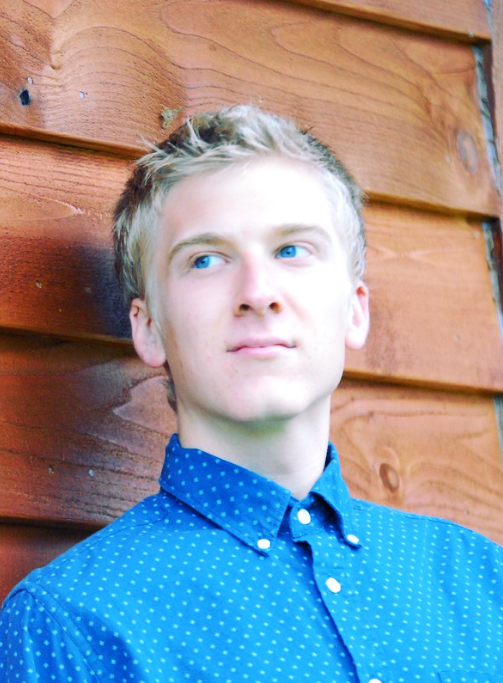Meet Teaching Artist Jack Harris


Jack Harris is a fiction MFA candidate at Minnesota State University, Mankato who also holds degrees in creative writing and graphic design. He has previously served as co-editor-in-chief of SAGA Art & Literary Magazine and has had work appear in Ligonier Valley Writers and Wisconsin People & Ideas.
The video below references classes Jack taught summer 2021. To see his current class list, visit his artist bio page.
***
When did you start teaching? What path—career or otherwise—brought you here?
This year was my first as a TA in English 101 at my MFA program, which was fascinating and informative and taught me a lot about teaching. On a more personal level, I often DM (Dungeon Master) for games of D&D, and I found that the experience of guiding players through a complex, theater-of-the-mind role-playing game felt remarkably similar to guiding students through, say, the paper editing process in 101. As for the Loft, it was one of my MFA friends who asked me to help redesign and teach a role-playing game writing course with him. I was hooked by the idea of combining my favorite elements of teaching with a creative subject I’m passionate about!
How would you describe your teaching style?
I can prepare as much material as I want, but students will usually take a class in unexpected and exciting directions. As a compromise, I’ve struck what I feel is a nice balance of a class agenda with spaces to let student conversation and creativity flow. That act of getting students invested in what they’re learning about, especially over Zoom, is crucial. Again, this is really similar to my approach in DMing Dungeons & Dragons games (but maybe with a few less goblins).
When it comes to imagining and creating classes, where do your ideas come from? What in particular inspires you?
I try to build classes that I would be excited to take if I were a student. If it isn’t already painfully obvious, I’m a giant geek and grew up on the internet with nooks and crannies full of experimental writing and writing forms. So while I won’t be teaching a class on Tumblr “webweaving,” for example, seeing people play with this form of intertextuality—a post I saw the other day was collaging quotes from Greek tragedies to YA fiction to oil paintings—is super inspirational. The same goes for fanfiction, which I do happen to be basing a class on.
What's the ideal environment for your classroom? What atmosphere are you hoping to establish?
Imagine a little farmer’s market on the side of the road full of people chatting, trading cabbages for blueberries for homemade earrings, and enjoying the sun. Now turn that into a classroom! By that I mean: a space where we can share our excitement and ideas in good faith while also getting work done and learning a thing or two together.
Regardless of what your class is specifically focusing on, what's the main goal you have for your students?
I believe there’s a love for literature inside all of us, and it only takes the right environment to bring that out or re-discover it. Reading and writing are so easy to push off, to tell yourself you’ll do tomorrow and then never get around to. But hopefully, through these classes, my students will leave feeling like “Oh, yeah, that’s right; I love this thing. Duh. Why aren’t I working on this thing?” They’ll recognize that love and gain some new tools or a kick in the pants to work with it.
What are goals you have for yourself? These could be teaching goals, writing goals, career goals, community goals, etc.
To be able to look people in the eye when I tell them I’m a writer! But seriously—to live a life centered on the aforementioned thing I love. That includes finishing my MFA, reading, submitting work to literary magazines, reading some more, passing on what few tidbits of wisdom I possess through teaching, reading, and so on. It’s important to me to know I’m creating positive change in the world through what I do professionally, but that change doesn’t come without love and work. So if I can continue to merge my love and my work, I’ll have felt as if I’ve unlocked a cheat code to life.
What have been some of your own favorite educational experiences?
I lied earlier when I said TAing was my first teaching experience; I’ve also interned for the Midwest Writing Center’s Young Emerging Writers program, one part of which involves a few dozen teenagers workshopping and editing and using that writing to make their very own lit mag. It’s utter madness, but in the best way. Watching those kids realize just how powerfully they can express and/or discover themselves through their craft was extremely special.
To you personally, what is the most important part of the literary arts?
I’m convinced an episode of TED Radio Hour called “Climate Mindset” has changed my life. This episode was focused on climate optimism, which aren’t words we normally see paired together, right? So often the stories we read about climate are dystopian and tragic and bleak, but emerging genres such as solarpunk seek to combat that bleakness—which might not accomplish anything except scaring us, oftentimes into stunned inaction—by creating fiction that’s hopeful or, at the very least, imagining solutions instead of dead ends.
To get back to this podcast, guests Tom Rivett-Carnac and Oliver Jeffers spoke about how humans are made of the stories we tell ourselves and are animated by those stories. We have a basic instinct to weave together the very disparate threads of our lives into a coherent narrative, and in this way, narratives are how we make sense of the world in order to take action and change. Something about that struck me. If we’re made of stories, then what we choose to read and write matters. Likewise, we have all kinds of scientists sounding all kinds of alarm bells, but that science only affects change if there’s a public and political will—i.e, if people care. Stories are a way of reframing our narrative—in this case, from one of hopelessness to “relentless optimism” mentioned in the podcast. Stories help us realize how much we care and how much we’re capable of and they connect us to the people and the world we live with. In that way, literacy is synonymous with empowerment.
Is there anything else you'd like to share?
Reading and writing were the spaces where I grew into my own queer identities through reading stories of people like me, and I think this is true of a lot of people and their multitudes of identities. Literacy is a craft that welcomes anyone and gives them an outlet to grow—and we’re never done growing. Hopefully, my classes can be a space for others to experience this growth either directly or indirectly. And also, of course, to write some radical stuff.
